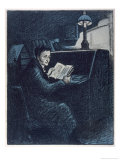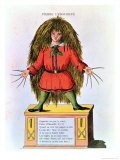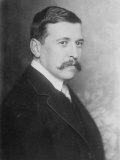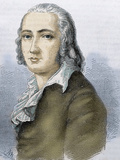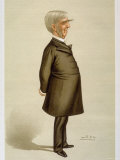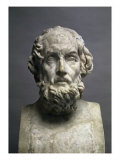|
|
|
|
|
Eric Hoffer
b. 7-25-1902; Bronx, NYC, NY
d. 5-21-1983; San Francisco
Author and philosopher Eric Hoffer, profiled as Dwight D. Eisenhower's favority author in Life magazine, was awarded the Presidential Medal of Freedom in February 1983.
Eric Hoffer quotes ~
• “My writing is done in railroad yards while waiting for a freight, in the fields while waiting for a truck, and at noon after lunch. Towns are too distracting.”
• “Wordiness is a sickness of American writing. Too many words dilute and blur ideas.”
• “There is not an idea that cannot be expressed in 200 words. But the writer must know precisely what he wants to say. If you have nothing to say and want badly to say it, then all the words in all the dictionaries will not suffice.”
• “For though ours is a godless age, it is the very opposite of irreligious. The true believer is everywhere on the march, and both by converting and antagonizing he is shaping the world in his own image. And whether we are to line up with him or against him, it is well that we should know all we can concerning his nature and potentialities.”
• “There are, of course, rare leaders such as Lincoln, Gandhi, even F.D.R., Churchill, and Nehru. They do not hesitate to harness man's hungers and fears to weld a following and make it zealous unto death in service of a holy cause; but unlike a Hitler, a Stalin, or even a Luther and a Calvin, they are not tempted to use the slime of frustrated souls as mortar in the building of a new world . . . . They know that no one can be honorable unless he honors mankind.”
• “A man is likely to mind his own business when it is worth minding. When it is not, he takes his mind off his own meaningless affairs by minding other people's business.”
• “There is a fundamental difference between the appeal of a mass movement and the appeal of a practical organization. The practical organization offers opportunities for self-advancement, and its appeal is mainly to self-interest. On the other hand, a mass movement, particularly in its active, revivalist phase, appeals not to those intent on bolstering and advancing a cherished self, but to those who crave to be rid of an unwanted self. A mass movement attracts and holds a following not because it can satisfy the desire for self-advancement, but because it can satisfy the passion for self-renunciation.”
• “It is doubtful if the oppressed ever fight for freedom. They fight for pride and power — power to oppress others. The oppressed want above all to imitate their oppressors; they want to retaliate.”
• “Our passionate preoccupation with the sky, the stars, and a God somewhere in outer space is a homing impulse. We are drawn back to where we came from.”
• “Unless a man has talents to make something of himself, freedom is an irksome burden.”
• “The uncompromising attitude is more indicative of an inner uncertainty than of deep conviction. The implacable stand is directed more against the doubt within than the assailant without.”
• “The remarkable thing is that we really love our neighbor as ourselves: we do unto others as we do unto ourselves. We hate others when we hate ourselves. We are tolerant toward others when we tolerate ourselves. We forgive others when we forgive ourselves. We are prone to sacrifice others when we are ready to sacrifice ourselves. ... It is not love of self but hatred of self which is at the root of the troubles that afflict our world.”
• “It has often been said that power corrupts. But it is perhaps equally important to realize that weakness, too, corrupts. Power corrupts the few, while weakness corrupts the many. Hatred, malice, rudeness, intolerance, and suspicion are the faults of weakness. The resentment of the weak does not spring from any injustice done to them but from the sense of inadequacy and impotence. We cannot win the weak by sharing our wealth with them. They feel our generosity as oppression. St. Vincent De Paul cautioned his disciples to deport themselves so that the poor “will forgive them the bread you give them.”
|
|
|
|
Ernst Theodor Wilhelm Hoffmann
b. 1-24-1776; Prussia
d. 6-25-1822; Berlin
Ernst Theodor Amadeus Hoffmann, one of the most influential authors of the Romantic movement (second half of the 18th century) is best known by his pen name, E. T. A. Hoffmann.
Composers inspired by Hoffmann include Tchaikovsky: the ballet The Nutcracker -“The Nutcracker and Mouse King”; Jacques Offenbach: opera The Tales of Hoffmann; and the ballet Coppelia with music by Léo Delibes.
Carl Gustav Jung read Hoffman's The Devil's Elixirs and found its problems “palpably real”, influencing his theory of archetypes. (Jung in Context, ed. by Paul Bishop, 1999)
E.T.A. Hoffmann quotes ~
• “Boys should not play with weapons more dangerous than they understand.”
• “It is nearly always the most improbable things that really come to pass.”
• “Think of the wonderful circles in which our whole being moves and from which we cannot escape no matter how we try. The circler circles in these circles.”
• “Once you are dancing with the devil, the prettiest capers won't help you.”
• “It is useless to contend with the irresistible power of Time, which goes on continually creating by a process of constant destruction.”
• “How prone poor Humanity is to dam up the minutest remnants of its freedom, and build an artificial roof to prevent it looking up to the clear blue sky.”
• “Not a single man on earth knows from his own experience the how and where of his birth, only from tradition, which is often very uncertain.”
• “Is it not in the most absolute simplicity that real genius plies its pinions the most wonderfully?”
• The Best Tales of Hoffmann
|
|
|
|
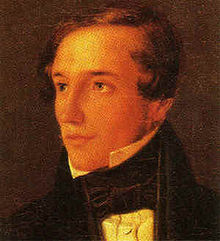
Heinrich Hoffmann
|
Heinrich Hoffmann
b. 6-13-1809; Frankfurt on Main, Germany
d. 9-20-1894
Physician, anatomy teacher, and psychiatrist Heinrich Hoffmann wrote and illustrated a story book, Der Struwwelpeter, about mischievous children, as a Christmas gift for his son.
• Struwwelpeter in English Translation 
“When the children have been good/ This, be it understood/ Good at meal-times, good at play/ Good all night and good all day–/ They shall have the pretty things/ Merry Christmas always brings.
Naughty, romping girls and boys/ Tear their clothes and make a noise,/ Spoil their pinafores and frocks, / And deserve no Christmas-book/ Such as these shall never look/ At this pretty Picture-book.
|
|
|
|
Hugo von Hofmannsthal
b. 2-1-1874; Vienna
d. 7-15-1929; stroke
Hugo von Hofmannsthal, novelist, poet, dramatist, narrator, and essayist, also was a librettist for the composer Richard Strauss' Elektra, Der Rosenkavalier, Ariadne auf Naxos, and others.
FYI - Hofmannsthal's daughter Christiane was the wife of Indologist (academic study of the languages and literature, history and cultures of the Indian subcontinent) Heinrich Zimmer, who was very influential on Joseph Campbell.
|
|
|
|
Friedrich Hölderlin
b. 3-20-1770; Lauffen am Neckar, Duchy of Württemberg
d. 6-7-1843; Tubingen, Germany
Friedrich Holderlin is best remembered today as a lyric poet of the Romantic period, a supporter of the French revolution, and a suffering hypochondriac whose reclusiveness kept his work out of the public eye.
Hölderlin was at the center of the intellectual culture of Germany: he was roommates with Hegel and Schelling at seminary, met Schiller and Goethe, and was admired by Nietzsche.
Friedrich Hölderlin quotes ~
• “Being at one is god-like and good, but human, too human, the mania
Which insists there is only the One, one country, one truth, and one way.”
• “What is all that men have done and thought over thousands of years, compared with one moment of love. But in all Nature, too, it is what is nearest to perfection, what is most divinely beautiful!”
• “What is the wisdom of a book compared with the wisdom of an angel?”
• “I call on Fate to give me back my soul.”
• “It was not delight, not wonder that arose among us, it was the peace of heaven.”
|
|
|
|
Oliver Wendell Holmes, Sr.
b. 8-29-1809; Cambridge, MA
d. 10-7-1894; Boston
Oliver Wendell Holmes, Sr., the father of Supreme Court Justice Oliver Wendell Holmes, Jr., was a physician and Professor of Anatomy & Physiology. He achieved his first fame as a writer and poet with his poem “Old Ironsides” which saved the 18th century wooden Navy frigate USS Constitution from being scraped in the 1830s. She is now the oldest commissioned ship afloat in the world.
In 1843 Holmes Sr. published The Contagiousness of Puerperal Fever which described how the deadly puerperal fever, also known as childbed fever, was carried from patient to patient by physicians and nurses.
Oliver Wendell Holmes, Sr. quotes ~
• “A man's mind is stretched by a new idea or sensation, and never shrinks back to its former dimensions.” ~ Autocrat of the Breakfast Table
• “I find the great thing in this world is not so much where we stand, as in what direction we are moving - we must sail sometimes with the wind and sometimes against it - but we must sail, and not drift, nor lie at anchor”.
• “If all the medicine in the world were thrown into the sea, it would be bad for the fish and good for humanity.”
• “Sin has many tools, but a lie is the handle which fits them all.”
• “Insanity is often the logic of an accurate mind overtasked. Good mental machinery ought to break its own wheels and levers, if anything is thrust among them suddenly which tends to stop them or reverse their motion. A weak mind does not accumulate force enough to hurt itself; stupidity often saves a man from going mad.”
• “The axis of the earth sticks out visibly through the center of each and every town or city.”
• “You may set it down as a truth which admits of few exceptions, that those who ask your opinion really want your praise, and will be contented with nothing less.”
• “Nothing is so common-place as to wish to be remarkable. Fame usually comes to those who are thinking about something else, - very rarely to those who say to themselves, ‘Go to, now, let us be a celebrated individual!’”
• “Be polite and generous, but don't undervalue yourself. You will be useful, at any rate; you may just as well be happy, while you are about it.”
• “I do not know in what shape the practical question may present itself to you; but I will tell you my rule in life, and I think you will find it a good one. Treat bad men exactly as if they were insane. They are in-sane, out of health, morally. Reason, which is food to sound minds, is not tolerated, still less assimilated, unless administered with the greatest caution; perhaps, not at all. Avoid collision with them, so far as you honorably can; keep your temper, if you can, — for one angry man is as good as another; restrain them from violence, promptly, completely, and with the least possible injury, just as in the case of maniacs, — and when you have got rid of them, or got them tied hand and foot so that they can do no mischief, sit down and contemplate them charitably...”
• “If a man has a genuine, sincere, hearty wish to get rid of his liberty, if he is really bent upon becoming a slave, nothing can stop him. And the temptation is to some natures a very great one. Liberty is often a heavy burden on a man. It involves that necessity for perpetual choice which is the kind of labor men have always dreaded. In common life we shirk it by forming habits, which take the place of self-determination. In politics party-organization saves us the pains of much thinking before deciding how to cast our vote.”
|
|
|
|
Homer
fl. ca. 8th century BC ??
Ancient Greek poet Homer is traditionally said to be the author of the epics the Iliad and the Odyssey. Current scholarship no longer views “Homer” as a historic individual but rather as a personfication that evolved over generations to hold the oral traditions and the collective works of many poets.
Matthew Arnold describes the four qualities of Homer - he is eminently rapid; that he is eminently plain and direct, both in the evolution of his thought and in the expression of it, that is, both in his syntax and in his words; that he is eminently plain and direct in the substance of his thought, that is, in his matter and ideas; and finally, that he is eminently noble.
Homer quotes ~
• “A guest never forgets the host who had treated him kindly.”
• “The belly is the commanding part of the body.”
• “Light is the task where many share the toil.”
• “Even where sleep is concerned, too much is a bad thing.”
• The Iliad and Odyssey [BOX SET]
• Odysseus poster
• Greece posters
|
|
|
|
bell hooks
née Gloria Jean Watkins
b. 9-25-1952; Hopkinsville, KY
bell hooks, the pen name of Gloria Jan Watkins, is a feminist and social activist whose writng focuses on the interconnectivity of race, class and gender. She is a professor of English and has published numerous books of poetry and nonfiction.
belle hooks quotes ~
• “The function of art is to do more than tell it like it is-it’s to imagine what is possible.”
• “When we face pain in relationships our first response is often to sever bonds rather than to maintain commitment.”
• “Genuine love is rarely an emotional space where needs are instantly gratified. To know love we have to invest time and commitment...‘dreaming that love will save us, solve all our problems or provide a steady state of bliss or security only keeps us stuck in wishful fantasy, undermining the real power of the love -- which is to transform us.’ Many people want love to function like a drug, giving them an immediate and sustained high. They want to do nothing, just passively receive the good feeling.”
• “I will not have my life narrowed down. I will not bow down to somebody else's whim or to someone else's ignorance.”
• “Love is a combination of care, commitment, knowledge, responsibility, respect and trust.”
• “When we drop fear, we can draw nearer to people, we can draw nearer to the earth, we can draw nearer to all the heavenly creatures that surround us.”
• “I am passionate about everything in my life – first and foremost, passionate about ideas. And that's a dangerous person to be in this society, not just because I'm a woman, but because it's such a fundamentally anti-intellectual, anti-critical thinking society.”
• “Being oppressed means the absence of choices.”
• “One of the most subversive institutions in the United States is the public library...”
• “I entered the classroom with the conviction that it was crucial for me and every other student to be an active participant, not a passive consumer ... education as the practice of freedom ... education that connects the will to know with the will to become. Learning is a place where paradise can be created.”
• “No other group in America has so had their identity socialized out of existence as have black women... When black people are talked about the focus tends to be on black men; and when women are talked about the focus tends to be on white women.”
• “I thought about how we need to make children feel that there are times in their lives when they need to be alone and quiet and to be able to accept their aloneness.”
• “Life-transforming ideas have always come to me through books.”
• “Some people act as though art that is for a mass audience is not good art, and I think this has been a very negative thing. I know that I have wanted very much to write books that are accessible to the widest audience possible.”
• “Death is with you all the time; you get deeper in it as you move towards it, but it's not unfamiliar to you. It's always been there, so what becomes unfamiliar to you when you pass away from the moment is really life.”
• “I feel like there is always something trying to pull us back into sleep, that there is this sort of seductive quality in all the hedonistic pleasures that pull on us.”
|
|
|
|
Gerard Manley Hopkins
b. 7-28-1844; Stratford, Essex, near London, England
d. 6-8-1889; Dublin, Ireland (typhoid)
Poet Gerard Manley Hopkins, who converted to Catholicism and became a Jesuit priest, was recognized posthumously for his striking use of language.
Hopkins' poetry was brought to popular attention by poet Robert Bridges.
Gerard Manley Hopkins quotes ~
• “Glory be to God for dappled things for skies of couple-color as a brinded cow; For rose-moles all in stipple upon trout that swim.”
• “Nothing is so beautiful as spring – when weeds, in wheels, shoot long and lovely and lush; Thrush's eggs look little low heavens, and thrush through the echoing timber does so rinse and wring the ear, it strikes like lightning to hear him sing.”
• “I caught this morning morning's minion, kingdom of daylight's dauphin, dapple-dawn-drawn Falcon.”
|
|
|
|
Avery Hopwood
b. 5-28-1882; Cleveland, Ohio
d. 7-1-1928; Juan-les-Pins, French Riveria
Playwright Avery Hopwood, called the most successful playwright of the Jazz Age, had four plays running on Broadway simultaneously in 1920. Among his noted works was Gold Diggers on which the Gold Diggers of 1933 musical was based.
He also endowed the Hopwood Award at the University of Michigan, his alma mater.
|
|
|
previous page | top | next
author list | a | b | c | d | e | f | g |
Hag-Hal | Ham-Han | Har | Hau-Haw | Hea-Hem | Hen-Her | Hes-Hey | Hi | HO-HOP |
Hor-How | Hub-Hun | Hur-Hw | i | j | k | l | m | n | o | p | q | r | s | t | u | v | w | x-y-z
|
|
I have searched the web for visual, text, and manipulative curriculum support materials - teaching posters, art prints, maps, charts, calendars, books and educational toys featuring famous people, places and events - to help teachers optimize their valuable time and budget.
Browsing the subject areas at NetPosterWorks.com is a learning experience where educators can plan context rich environments while comparing prices, special discounts, framing options and shipping from educational resources.
Thank you for starting your search for inspirational, motivational, and educational posters and learning materials at NetPosterWorks.com. If you need help please contact us.
|
|
|
|








